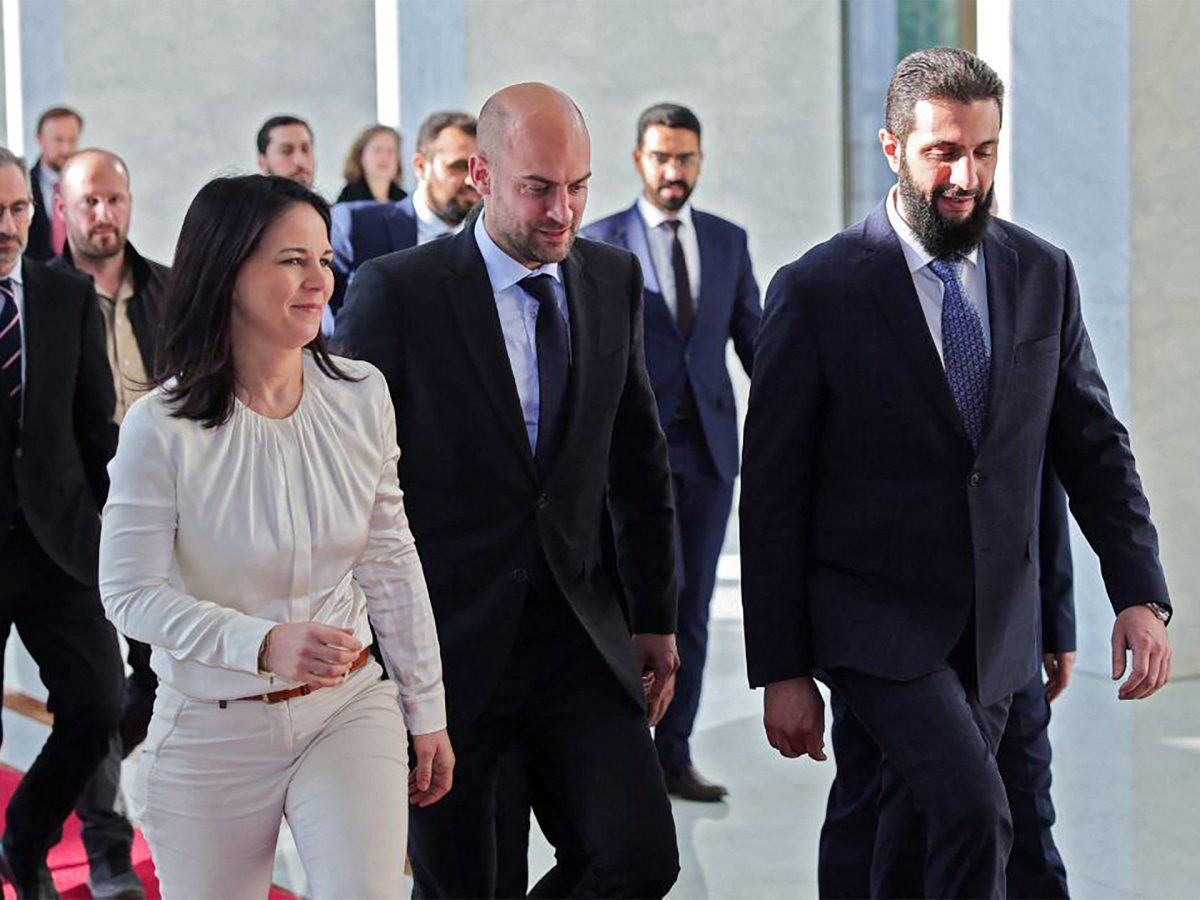Germany’s Annalena Baerbock and France’s Jean-Noel Barrot held talks with Syria’s de-facto leader Ahmed al-Sharaa, also referred to as Abu Mohammed al-Julani, in the Syrian capital on Friday.
Their visit comes as Western governments open channels with al-Sharaa’s Hayat Tahrir al-Sham (HTS) – a group with past links to al-Qaeda that led the rebellion against al-Assad – debating whether to remove its terrorist designation.
Barrot landed first in the Syrian capital on Friday morning, having posted on social media platform X that France and Germany stood with the Syrian people “in all their diversity”, voicing support for a “peaceful and demanding transition in the service of the Syrians and for regional stability”.
“A political solution must be reached with France’s allies, the Kurds, so that they are fully integrated into this political process that is beginning today,” Barrot said after meeting civil society representatives in Damascus.
In a news briefing after meeting the new Syrian administration, Baerbock stated: “In our talks today we made clear Europe will support [Syria] but Europe will not be a financier of Islamist structures.”
“Ethnic and religious groups involving men as well as women … must be involved in the constitutional process and in a future Syrian government,” she added.
The ministers also visited Sednaya Prison, the site of extrajudicial executions, torture and forced disappearances during the al-Assad family’s decades-long rule.
“What the Assad regime has meant we saw today in Sednayah … This gave only a faint idea of the unimaginable physical and mental torment that took place there,” Baerboek said, adding that an “accountability mechanism could help the people of Syria to slowly heal the deep wounds”.
Before her visit to Syria, Baerbock had specifically asked the new government to avoid “acts of vengeance against groups within the population”, to avoid a long delay before elections, and to avert attempts to introduce religious content into the judicial and education systems.
The new Syrian authorities have already announced curriculum changes, including scrapping poetry relating to women and love and references to “Gods” in ancient history courses.
On governance, al-Sharaa recently stated that it could take about three years to present a new draft constitution, and another year until elections.
Baerbock noted Germany wanted to overcome “scepticism” about HTS and help Syria return to being “a functioning state with full control over its territory”.
Al Jazeera reproted that the German and French foreign ministers came with a “long list of demands” for the new administration.
“They say that HTS has to renounce acts of vengeance against its opponents and embrace a moderate path. It has to allow an inclusive government where minorities will be represented and it also has to present the Syrian people and international community with a clear path to a transition that should start in March,” it said.
“They also made it clear they would not tolerate the presence of radical groups here. They said that there’s a huge concern about the IS taking advantage of the volatile situation in Syria to pose a serious threat to the entire region,” it added.
